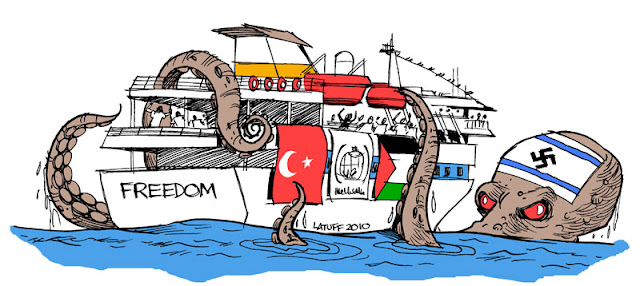The Cold War Against the Jews
In November 2023, I became involved in a small community of Jewish academics who were concerned about these developments. Rather than expending our effort on debating with academic associations, we decided to focus on developing one of our own. In January 2024, I joined 22 North American scholars on a solidarity mission to visit academic campuses in Israel. Our group consisted of faculty members representing Yeshiva University, Jewish Theological Seminary, and Hebrew Union College, as well as Emory University, Bard College, Washington University at St. Louis, and other colleges across North America.Seven in ten Jewish students “uncomfortable” revealing their religion
Our visits to campuses across Israel were sobering. As we listened to Israeli professors and administrators share story after story about their exclusion from global academic communities, we became increasingly attuned to the situation’s tragic irony. The same faculty and administrators who had been boycotted as progenitors of apartheid had devoted their careers to producing pluralist campuses. Twenty percent of the undergraduate population of Achva College, which is just a few miles from the Gazan border, is Israeli Bedouin. Tel Aviv University, one of the most elite universities in the world, also serves a diverse student population, 16% of whom are Arab Israelis. Forty percent of the University of Haifa’s student body is Arab Israeli.
The trip convinced us that we are dealing with a global issue that runs not only up and down the educational ladder, but also around the globe. Excluded from journals, conferences, and public gatherings, pressured to change their public writings to conform with others’ sensitivities, and gaslit by administrators who inform them that all of this has nothing to do with antisemitism, we had discovered that to be a Jew in academic spaces was to embody provocation—and that provocation, we were told, had to be suppressed for the sake of everyone’s comfort.
This trend was also surfacing in literary circles outside of academia. In March 2024, the journal Guernica greenlit Joanna Chen’s essay “From the Edges of a Broken World,” a reflective memoir by an Israeli leftist that expressed empathy with both Israeli victims of Oct. 7 and with Palestinian people. The essay’s publication sparked a mass resignation of Guernica’s staff that culminated in a public apology from the journal’s editor for publishing “Genocide apologia”—though there is no evidence of a genocide being committed by Israel, nor was Chen writing apologetics for Israel or the actions of her government. Most recently, Gabrielle Zevin’s novel Tomorrow, Tomorrow, and Tomorrow was blacklisted among booksellers for being tainted by the Zionism of its author. Zevin, though Jewish, has made no public statements in support of Israel.
Around the same time that my children were told that the Nazis were coming for them, and that the Jewish teacher working across the street was fired, something else happened to me. A representative of the Jewish Publication Society, a historic press with a reputation for bringing outstanding Jewish scholarship to wide English-speaking audiences, contacted me about applying for the position of their editor-in-chief. Aware of what had been taking place in Jewish literary circles, I jumped at the chance. I was offered the position three months later.
When news of my new position was shared in July, I was inundated with hundreds of emails, text messages, and phone calls from authors of children’s books, poetry, young adult novels, fiction, philosophy, ethics, Bible, religion, and history. All of them sent warm congratulations, but many were more interested in sharing their concern. What was the Jewish Publication Society going to do to meet this critical moment?
I’ve been thinking about this question myself. It’s clear that some of what JPS will achieve in the coming years is going to depend on partnerships with other organizations and institutions. With the right allies, JPS can develop an authors’ cohort, a college research internship, and maybe even a podcast. But more than anything, the question of how JPS is going to meet this moment depends on books. And to publish books, we need Jewish authors to keep writing. In response to exclusion, Jews must build their own centers of knowledge. Every person who cares about Jewish ideas, moreover, should view themselves as a repository of creative knowledge, and view the production of knowledge as an act of resistance against the scourge of antisemitism wending its way through academic circles.
As Jews continue to find themselves isolated in schools, professional spaces, and even in their front driveways, we must recommit ourselves to building communities that foster the production of great Jewish ideas. This is my answer to well-wishers who have reached out to me voicing their concern about the Jewish future: Be creative. Build communities. Go write.
A survey of Jewish students published today has revealed that 7 in 10 are “somewhat uncomfortable” or “very uncomfortable” revealing their Jewish faith.The self-induced downfall of the International Criminal Court
In its first report, “I have never felt less protected as a Jew”: Antisemitism at UK Universities since 7th October 2023, the Intra-Communal Professorial Group (ICPG) - which was formed earlier this year “in response to a significant rise of antisemitism across academia globally and in UK higher education” - has found that just 22 per cent of Jewish students are comfortable revealing their faith - a dramatic decline since the start of the Israel-Hamas conflict. Prior to that, the survey finds, 79 per cent of Jewish students had no problem saying they are Jewish.
The ICPG spoke to 500 Jewish students between May 29 and July 3. Although it is not a formal poll was “not a formal statistical sample of the population”, the ICPG says its findings are “broadly representative”.
63 per cent of the students surveyed had seen Jewish students being harassed because of their faith, both on social media and on campus - in contrast to just three in 10 who witnessed it before the current conflict.
41 per cent had been subject themselves to such behaviour over the past year – nearly twice the 21 per cent who said they had experienced antisemitic abuse before last autumn. 5.2 per cent said they had been physically attacked. Others said they had suffered verbal insults, harassment and Nazi imagery. One student said she was “spat at” for wearing “a JSoc [Jewish Society] jumper on campus”, while others said they had been
“chased by a man with a large glass bottle”, been pelted by eggs after hearing the Chief Rabbi speak on campus, had their Star of David necklaces grabbed from their necks and had rubbish thrown at them,
The ICPG said the government should launch a special task force to combat antisemitism in universities.
The idea of creating an International Criminal Court to prosecute the world’s worst offenders, who committed the worst crimes, was a noble one. In the aftermath of the Holocaust, Israel and Jews were among the leading proponents of establishing such a court. In practice, however, the ICC has proven to be a colossal failure. Now, as a result of the actions of the ICC’s chief prosecutor, Karim Khan, and his predecessor Fatou Bensouda, the court, as an establishment, is reaching ever-deepening lows.
Bensouda was distinctly hostile to Israel. She was the one who generated the ICC prosecution theory of a non-existent “State of Palestine.” She pushed the court into taking upon itself jurisdiction that it does not possess, to define the borders, de novo, of this non-existent state. She was also the one to officially adopt, lock, stock and barrel, the Palestinian narrative regarding Israel’s actions and to allege that Israeli officials had committed serious offenses.
As regards the Palestinians, Bensouda was quite forgiving and focused mainly on the actions of the acknowledged terrorists. She did however have one saving grace.
In her “Report on Preliminary Examination Activities” (2019)1 Bensouda noted, inter alia, that the Office of the Prosecutor had also received allegations that the “Palestinian Authority has encouraged and provided financial incentives for the commission of violence through their provision of payments to the families of Palestinians who were involved, in particular, in carrying out attacks against Israeli citizens, and under the circumstances, the payment of such stipends may give rise to Rome Statute crimes.”
Bensouda was of course referring to the P.A.’s terror-rewarding “pay-for-slay” policy. This decades-old policy consists of two elements: a) the payment of monthly allowances to injured terrorists and the families of dead terrorists; and b) the payment of monthly salaries to terrorists who have been arrested by Israel. Even though the two elements are technically separate, their common goal is to encourage and incentivize participation in terror. While the payment of allowances to injured terrorists and the families of dead terrorists is mandated by internal policies of the Palestine Liberation Organization (PLO), the payment of the salaries to the imprisoned and released terrorists is fixed in a P.A. law—Law of Prisoners and Released Prisoners No. 19 of 2004—and accompanying P.A. government regulations. According to analysts and commentators, every year, the P.A. spends an estimated one billion shekels ($270 million) on these terror rewards. The terror-rewarding payments are not concealed by the P.A. Palestinian leader Mahmoud Abbas has openly declared on the world stage and in the P.A. media that even if the P.A. is left with only one penny in its coffers, it would pay that penny to the terrorists.









%20(1).jpeg)


%20Nasser%20Kanaani%20on%20X_%20_The%20Zionism%20monster%20poses%20a%20threat%20to%20the%20_%20-%20twitter.com.png)




.jpg)






